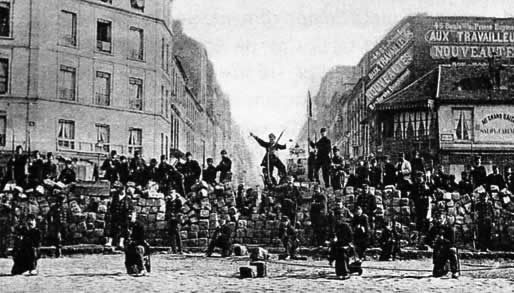The question of disbanding the police forces and military has come up occasionally on babble, with varying responses. I thought it might be a good idea to look at a time in history when police forces as such were in fact disbanded with positive effect. I don't know much about the Paris Commune of 1871, but it's probably one of the most positive moments the world has ever seen to an example of socialism at work.
I'm sure there must be some experts on the Commune de Paris here. What do you know?
The old French order, the Republic…hah, Liberals, they called themselves…they did not dare come into Paris. They trembled with fear, because with the Germans gone, Paris was taken over by the workers, the housewives, the intellectuals, the clerks, the armed citizens. The people of Paris formed not a government but something more glorious, something that governments everywhere fear: a commune, the collective energy of the People. It was the Commune de Paris!People were meeting 24 hours a day… everywhere lots of three and four, making decisions together. The city was surrounded by the French Army, threatening to invade it at any moment. Paris became the first free city in the world: the first enclave of Liberty in a world of Tyranny. If you want to know what I mean by the dictatorship of the proleteriat, look at the Commune de Paris… THAT is a true democracy!
Hah, not the democracy of England and America, where elections are circuses, where people are voting for one or another guardian of the old order, where whatever candidate wins, the rich go on ruling the country!”
—Howard Zinn, Marx in Soho





